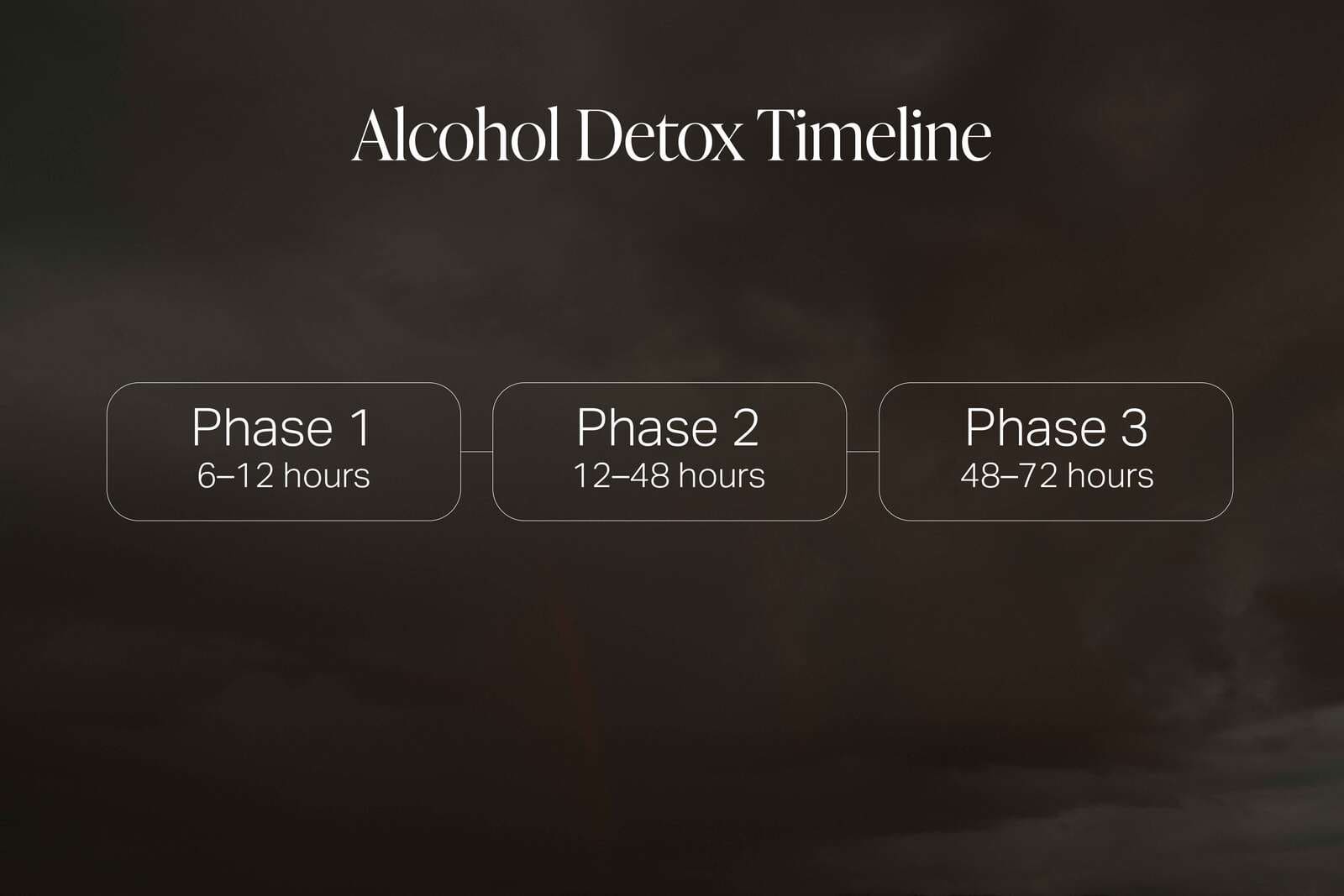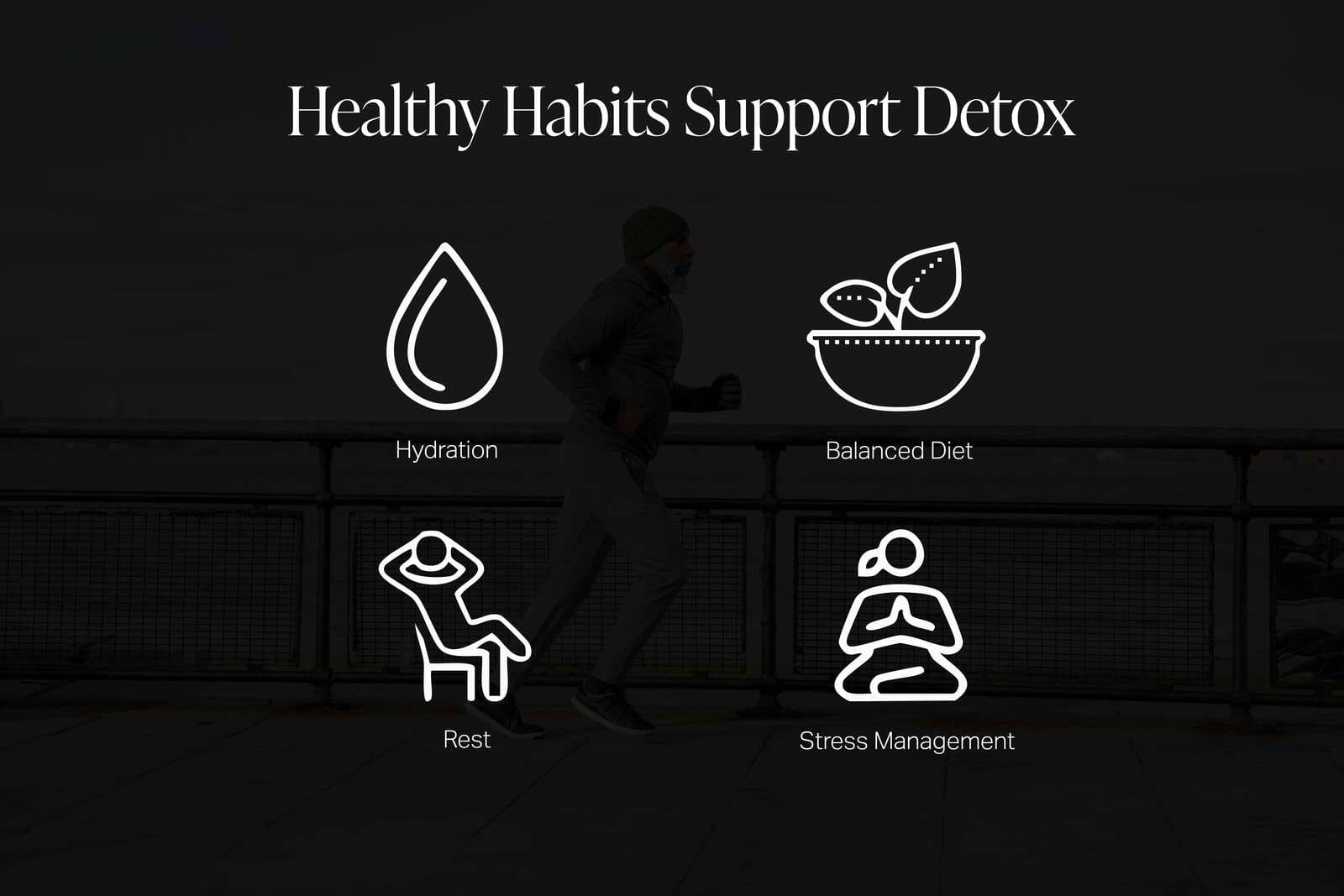Table of Contents
Alcohol detox is the process by which the body eliminates alcohol and restores balance to its systems after prolonged or heavy drinking. This process can begin as soon as a few hours after your last drink and may last several days. The severity and duration of detox symptoms vary based on drinking history, overall health, and whether withdrawal has been experienced before.
The Timeline of Alcohol Detox
Alcohol detox generally follows three phases, each with distinct symptoms:
- Phase 1 (6–12 hours): Anxiety, nausea, headache, increased heart rate, sweating, and tremors.
- Phase 2 (12–48 hours): Elevated blood pressure, confusion, fever, and possible mild hallucinations.
- Phase 3 (48–72 hours): Severe symptoms such as seizures and delirium tremens, which can be life-threatening without medical intervention.
These symptoms occur because alcohol is a central nervous system depressant. Over time, the brain compensates for alcohol’s sedative effects by increasing excitatory neurotransmitters. When alcohol is removed, the nervous system becomes overactive, causing withdrawal symptoms.

Why Medical Supervision Is Important
Detox can be dangerous for individuals with severe dependence. Medical supervision ensures that withdrawal symptoms are monitored and treated promptly, reducing the risk of complications such as seizures or irregular heart rhythms. In a supervised setting, medications can be used to reduce discomfort and prevent severe symptoms.
Supporting the Body During Detox
While you cannot speed up the liver’s elimination of alcohol, you can support your recovery:
- Hydration: Replace fluids lost through sweating and increased urination.
- Balanced Diet: Include proteins, whole grains, fruits, and vegetables to replenish nutrients.
- Rest: Adequate sleep helps restore nervous system balance.
- Stress Management: Relaxation techniques like deep breathing can help manage anxiety during detox.
In structured programs like alcohol rehab, these support measures are integrated into personalized treatment plans.

Long-Term Benefits of Completing Detox
Successfully completing detox is the first step toward long-term sobriety. Benefits include improved energy levels, better sleep, healthier liver function, and reduced risk of alcohol-related diseases. However, detox alone does not address the psychological aspects of addiction, which require ongoing therapy and support.
Continuing the Conversation About Alcohol Recovery
How Long Does Alcohol Stay in Your System? Understanding the Detox Timeline
On average, the body processes one drink in 1–2 hours, but heavy use extends the period significantly.
How Long Does Alcohol Stay in Your Urine and Affect Testing?
Standard urine tests detect alcohol for up to 48 hours; EtG testing can extend detection to 80 hours.
Can You Speed Up Alcohol Detox Naturally?
Lifestyle habits such as hydration and proper nutrition help ease discomfort but do not quicken metabolism.
Why Does Alcohol Withdrawal Happen and How Can You Cope?
Withdrawal occurs due to the nervous system’s adjustment to chronic alcohol use; managing it often requires medical oversight.











